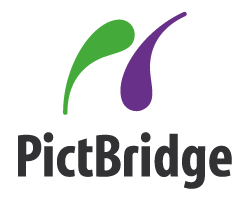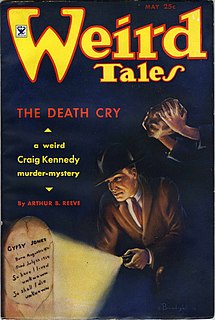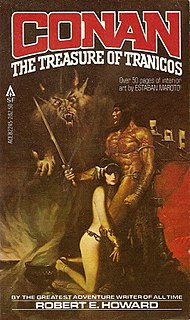See also
- Several Species of Small Furry Animals Gathered Together in a Cave and Grooving with a Pict, a Pink Floyd track
- Pictones, a Gallic tribe dwelling south of the Loire river
Pict or PICT may refer to:

Computing is any goal-oriented activity requiring, benefiting from, or creating computing machinery. It includes the study and experimentation of algorithmic processes and development of both hardware and software. It has scientific, engineering, mathematical, technological and social aspects. Major computing disciplines include computer engineering, computer science, cybersecurity, data science, information systems, information technology and software engineering.
Cartridge may refer to:

Fortran is a general-purpose, compiled imperative programming language that is especially suited to numeric computation and scientific computing.
PostScript (PS) is a page description language in the electronic publishing and desktop publishing business. It is a dynamically typed, concatenative programming language. It was created at Adobe Systems by John Warnock, Charles Geschke, Doug Brotz, Ed Taft and Bill Paxton from 1982 to 1984.
Script may refer to:

Wolfram Mathematica is a software system with built-in libraries for several areas of technical computing that allow machine learning, statistics, symbolic computation, manipulating matrices, plotting functions and various types of data, implementation of algorithms, creation of user interfaces, and interfacing with programs written in other programming languages. It was conceived by Stephen Wolfram, and is developed by Wolfram Research of Champaign, Illinois. The Wolfram Language is the programming language used in Mathematica.

In computing, internationalization and localization (American) or internationalisation and localisation, often abbreviated i18n and L10n, are means of adapting computer software to different languages, regional peculiarities and technical requirements of a target locale. Internationalization is the process of designing a software application so that it can be adapted to various languages and regions without engineering changes. Localization is the process of adapting internationalized software for a specific region or language by translating text and adding locale-specific components. Localization uses the infrastructure or flexibility provided by internationalization.
Encapsulated PostScript (EPS) is a Document Structuring Convention–conforming (DSC) PostScript document format usable as a graphics file format. EPS files are more-or-less self-contained, reasonably predictable PostScript documents that describe an image or drawing and can be placed within another PostScript document. An EPS file is essentially a PostScript program, saved as a single file that includes a low-resolution preview "encapsulated" within it, allowing some programs to display a preview on the screen.
An object file is a computer file containing object code, that is, machine code output of an assembler or compiler. The object code is usually relocatable, and not usually directly executable. There are various formats for object files, and the same machine code can be packaged in different object file formats. An object file may also work like a shared library.
PICT is a graphics file format introduced on the original Apple Macintosh computer as its standard metafile format. It allows the interchange of graphics, and some limited text support, between Mac applications, and was the native graphics format of QuickDraw.
Set, The Set, SET or SETS may refer to:
Computer-aided translation (CAT), also referred to as machine-assisted translation (MAT) or machine-aided human translation (MAHT), is the use of software to assist a human translator in the translation process. The translation is created by a human, and certain aspects of the process are facilitated by software; this is in contrast with machine translation (MT), in which the translation is created by a computer, optionally with some human intervention.

PictBridge is a historical computing industry standard introduced in 2003 from the Camera & Imaging Products Association (CIPA) for direct printing. It allows images to be printed directly from digital cameras to a printer, without having to connect the camera to a computer. Its formal name is "Standard of Camera & Imaging Products Association CIPA DC-001 — 2003 Digital Solutions for Imaging Devices". CIPA DC-001-2003 Rev. 2.0 has been published in 2007.
DML may refer to:

"Beyond the Black River" is one of the original short stories about Conan the Cimmerian, written by American author Robert E. Howard and first published in Weird Tales magazine, v. 25, nos. 5-6, May-June 1935. The story was republished in the collections King Conan and Conan the Warrior. It has more recently been published in the anthology The Mighty Swordsmen, and the collections The Conan Chronicles Volume 2: The Hour of the Dragon and Conan of Cimmeria: Volume Three (1935-1936). It's set in the pseudo-historical Hyborian Age and concerns Conan's battle against a savage tribe of Picts in the unsettled lands beyond the infamous Black River.

"The Black Stranger" is a fantasy short story by American writer Robert E. Howard, one of his works featuring the sword & sorcery hero Conan the Cimmerian. It was written in the 1930s, but not published in his lifetime. When the original Conan version of his story failed to find a publisher, Howard rewrote "The Black Stranger" into a piratical Terence Vulmea story entitled "Swords of the Red Brotherhood".
Pune Institute of Computer Technology, is a private unaided engineering college located in Dhankawadi, Pune, India. Established by the Society for Computer Technology and Research, SCTR in 1983. It offers degrees in Information Technology, Computer Engineering and Electronics and Telecommunication Engineering.
Sol or SOL may refer to:
A source-to-source translator, source-to-source compiler, transcompiler, or transpiler is a type of translator that takes the source code of a program written in a programming language as its input and produces an equivalent source code in the same or a different programming language. A source-to-source translator converts between programming languages that operate at approximately the same level of abstraction, while a traditional compiler translates from a higher level programming language to a lower level programming language. For example, a source-to-source translator may perform a translation of a program from Python to JavaScript, while a traditional compiler translates from a language like C to assembler or Java to bytecode. An automatic parallelizing compiler will frequently take in a high level language program as an input and then transform the code and annotate it with parallel code annotations or language constructs.
Search engine indexing is the collecting, parsing, and storing of data to facilitate fast and accurate information retrieval. Index design incorporates interdisciplinary concepts from linguistics, cognitive psychology, mathematics, informatics, and computer science. An alternate name for the process, in the context of search engines designed to find web pages on the Internet, is web indexing.